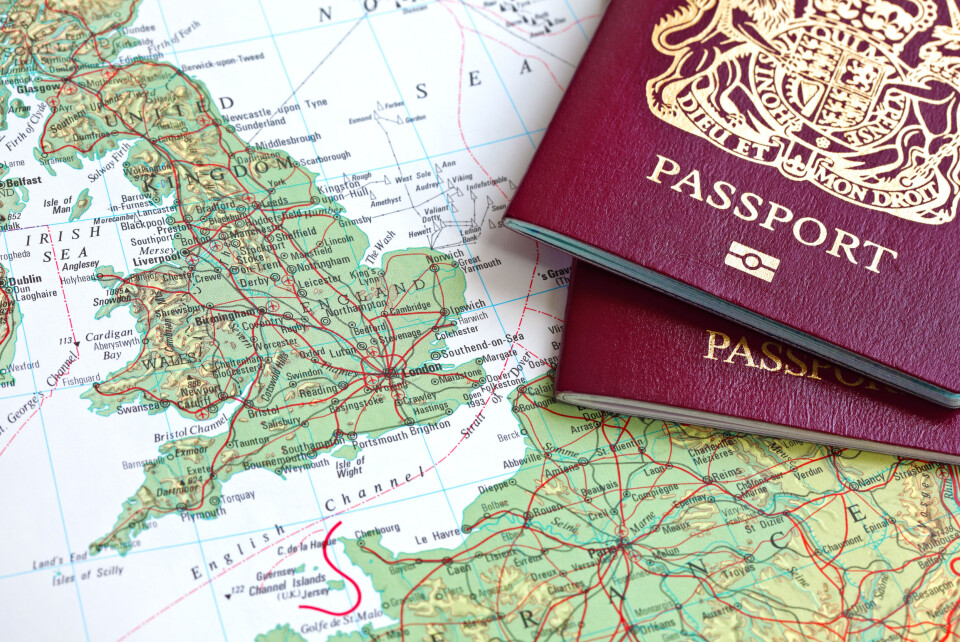-
Is it time to stop changing the clocks in Europe?
Campaigners say it would help improve health and also reduce traffic accidents
-
Gisèle Pelicot memoir hits sales top spot in France
The book, which has been translated into 22 languages, left Queen Camilla ‘speechless’
-
New tax on deliveries from outside EU: How will it affect customers?
The new charge will apply to all deliveries valued under €150
What counts as 'essential reasons' for UK-France travel from Saturday?
France has announced that people will not be allowed to visit from the UK for tourism or work trips

[Article updated December 16 at 13:15]
The French government has announced stricter travel restrictions on people travelling from the UK to France, which are set to come into effect from 00:00 on Saturday (December 18).
Read more: New UK-France restrictions: No tourist visits and quarantine announced
The new rules include the tightening of permitted pre-departure test time frames from 48 to 24 hours, and a seven-day quarantine period for all arrivals, although this can be shortened by a negative test result taken after arrival in France.
In addition, people will only be allowed to enter France if they have an “essential reason” for travel, regardless of their vaccination status.
Gabriel Attal (@GabrielAttal) annonce qu'un "contrôle aux frontières plus drastique" sera appliqué pour les déplacements entre la France et le Royaume-Uni pic.twitter.com/LIrZ7sGwMD
— BFM (@BFMTV) December 16, 2021
What are these essential reasons?
A full list of the permitted motives for travel to France from the UK under the new rules has been published. They are in almost all respects the same as those for unvaccinated people coming from other orange-listed countries.
France’s list of pressing grounds, which can be found at the bottom of this page, include:
- French nationals (or the spouse, partner or children of a French national who can prove this relationship)
- EU/EEA nationals (or the spouse, partner or children of an EU/EEA national), who live in France or are travelling through France to their home country in the EU/EEA
- Residents of France with a visa or residency permit to prove this as well as UK nationals and their families who benefit from the Brexit Withdrawal Agreement (for the latter evidence would be needed, such as a Withdrawal Agreement residency card)
- Hauliers and logistics workers needing to travel to France for the transport of goods. UK Transport Secretary Grant Shapps has confirmed that the rules will not apply to these workers.
To confirm I have liaised with my French counterpart @Djebbari_JB and hauliers will remain exempt.https://t.co/7kKsusKlwW
— Rt Hon Sir Grant Shapps (@grantshapps) December 16, 2021
- People transiting through France via the international zone in airports and spending less than 24 hours in the country.
- Foreign diplomats and the employees of international organisations based in France who must travel for work which cannot be carried out otherwise, along with their spouse, partner and/or children.
The list also includes:
- British civil servants carrying out public functions
- Border police, customs officers and people who work at the Channel tunnel
- Healthcare professionals travelling for projects related to the fight against Covid or on a specific placement
- People with a passeport talent residency status
- Students enrolled in French university courses, as well as researchers or lecturers who must be in France to work
La liste des motifs impérieux vers et depuis le Royaume-Uni, communiquée par Matignon. pic.twitter.com/TLK40JinJM
— Nicolas Berrod (@nicolasberrod) December 16, 2021
Article edited December 16 to clarify rules on transit through the country
Related stories
French health pass: Booster jab requirement for over-65s starts today
























